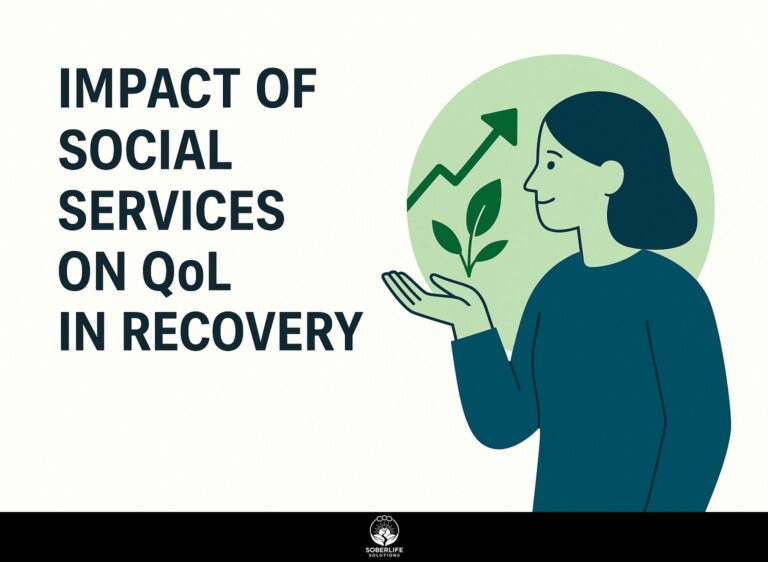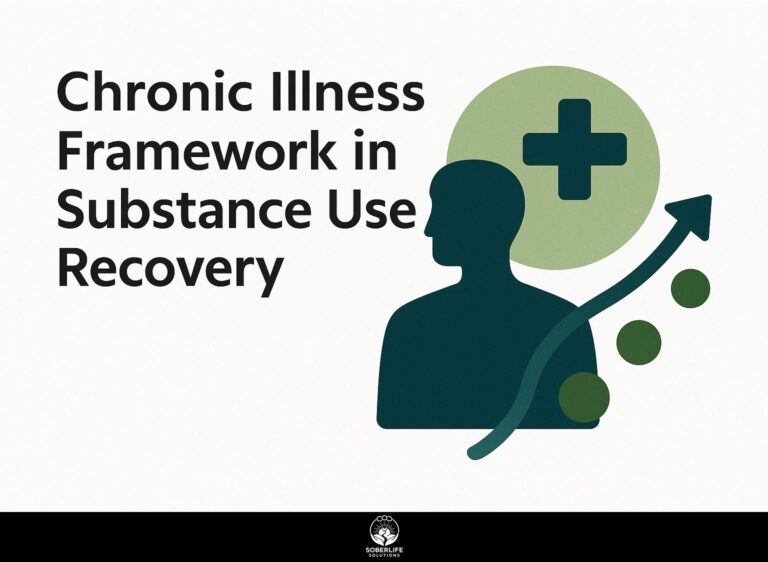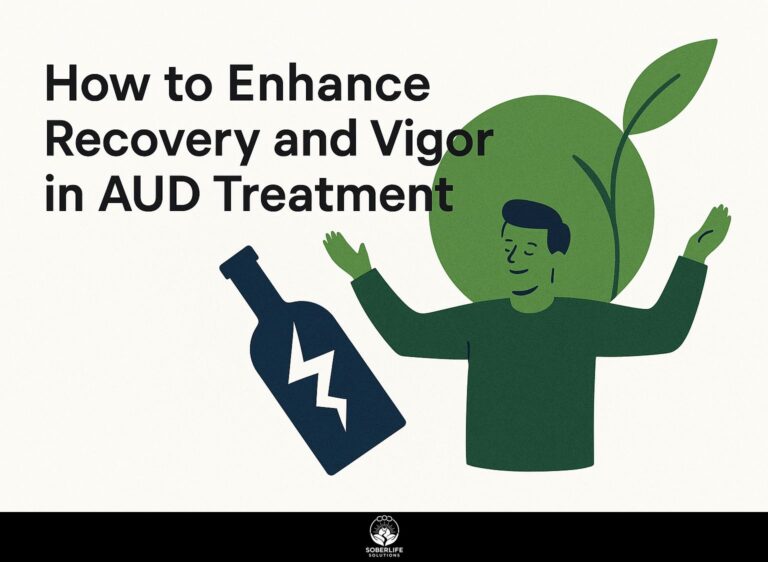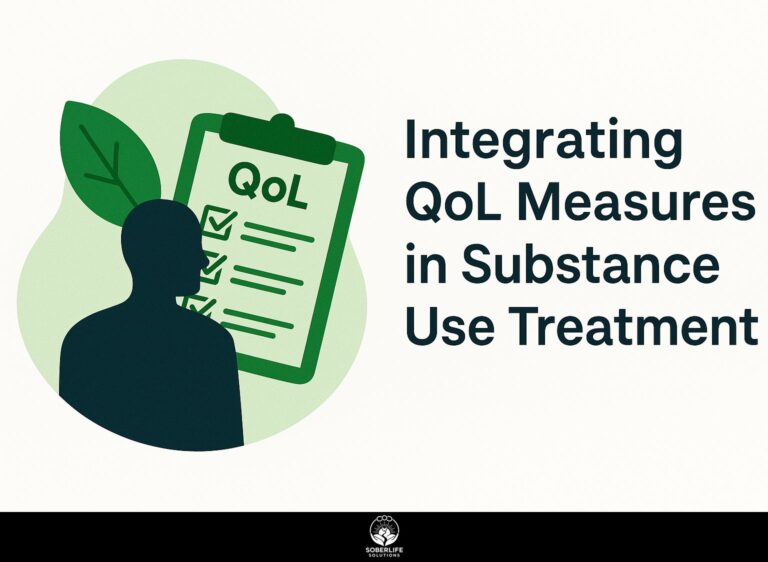How to Address Negative Affect to Prevent Relapse in Recovery
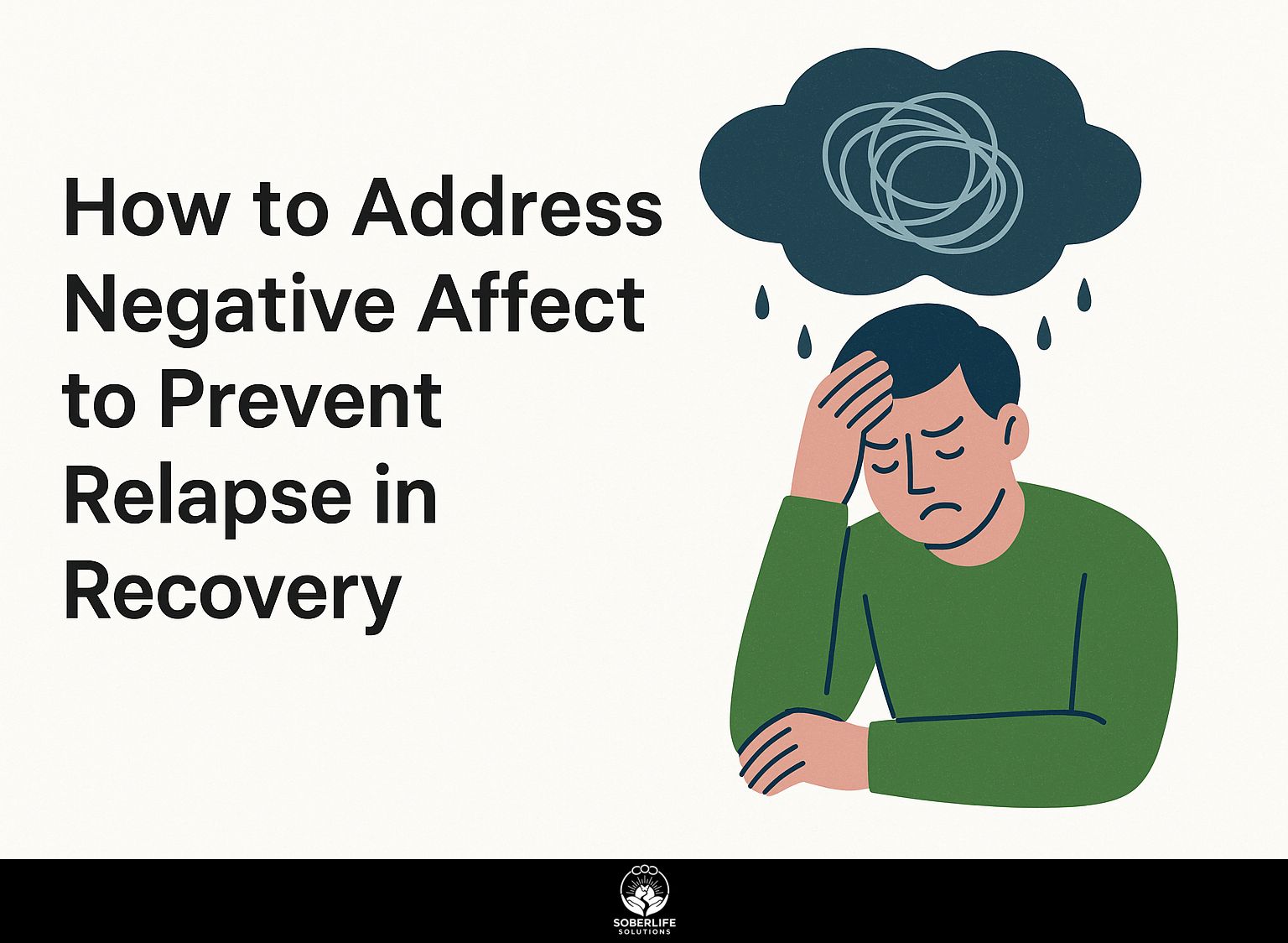
Relapse is a common concern in recovery, especially when negative affect surfaces. Knowing the stages of relapse, like emotional relapse, is important for preventing it effectively. By using the five rules of recovery and methods from cognitive therapy, people can handle these problems with help from groups like Alcoholics Anonymous. This article will look at how to deal with negative emotions, find out what causes them, and create ways to handle them to protect your recovery process.
Key Takeaways:
Understanding Negative Affect
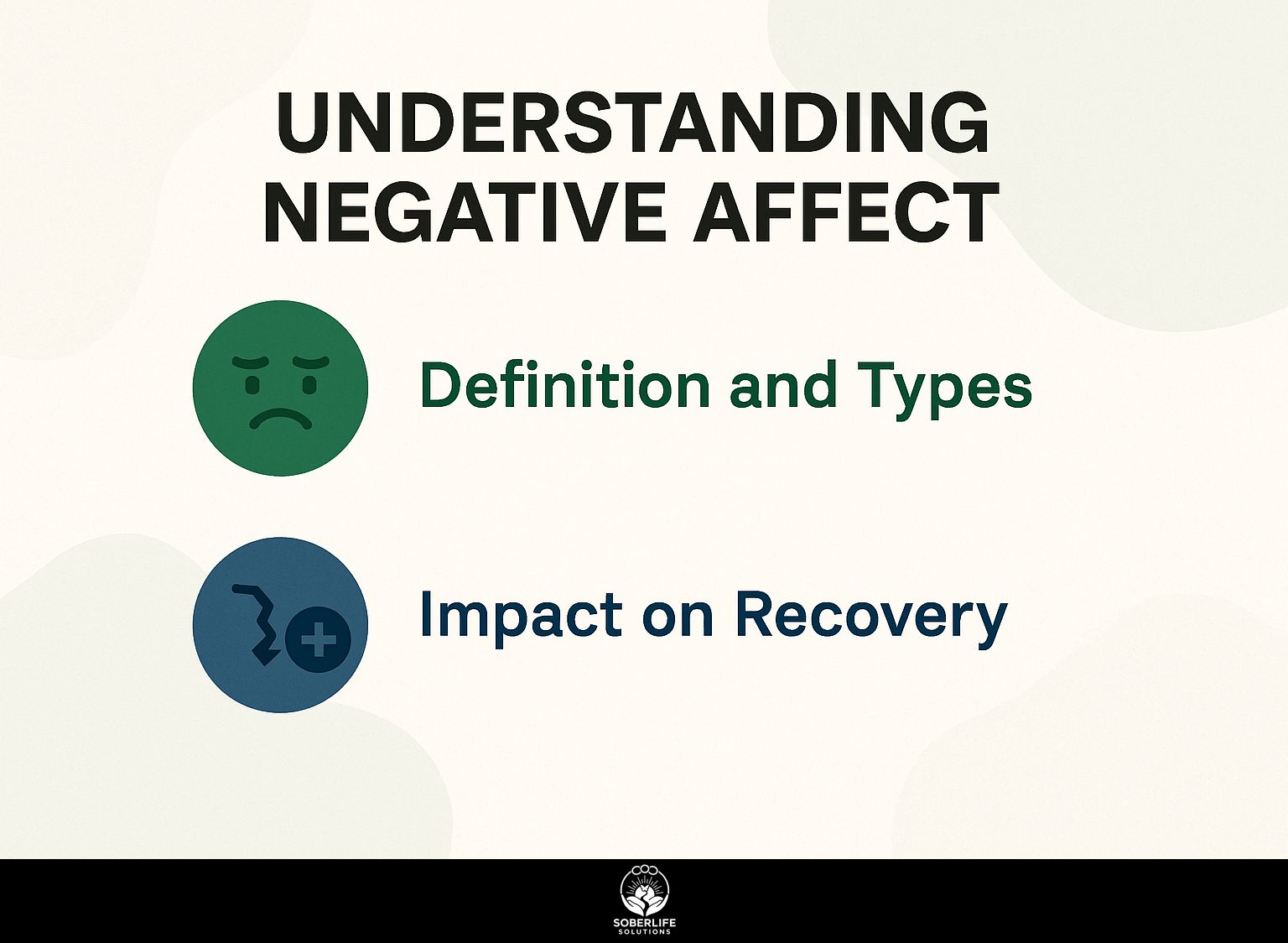
Negative emotions include feelings like sadness or anxiety, which can greatly affect a person’s recovery from substance use disorders. For those struggling with these emotions, understanding the benefits of techniques such as mindfulness can be crucial (our guide on mindfulness and meditation delves into its impact on recovery).
Definition and Types
Negative affect can be defined as a range of emotional states, including anxiety and depression, which can be classified into distinct types: emotional, mental, and physical relapse.
Each type of negative affect plays a significant role in relapse stages.
Emotional relapse often manifests as heightened irritability or mood swings, affecting interpersonal relationships.
Mental relapse includes ruminating thoughts and cravings, overriding one’s commitment to recovery.
When a person experiences physical relapse, they might feel tired or have low energy, which can make it hard to take part in activities that promote good health.
Seeing these signs early is important for taking action. For instance, using mindfulness techniques can help manage feelings and thoughts, making it easier to avoid triggers that might lead to relapse. This aligns with findings from Nature, which suggests that emotional dysregulation is a critical driver of relapse.
Impact on Recovery
Feeling negative can significantly slow down recovery, causing more relapse triggers and worsening thinking errors, which can interrupt the recovery process.
Research indicates that individuals with high levels of negative affect are 60% more likely to relapse. This higher risk is due to issues with thinking, such as making poor decisions and acting on impulse.
According to a study published by ScienceDirect, bad feelings can change how we make decisions, making it hard to recognize and avoid risky situations. Implementing strategies like mindfulness practices or cognitive-behavioral techniques can help counteract these effects.
For example, daily journaling can increase self-awareness and facilitate healthier coping mechanisms, promoting resilience in recovery.
Identifying Triggers
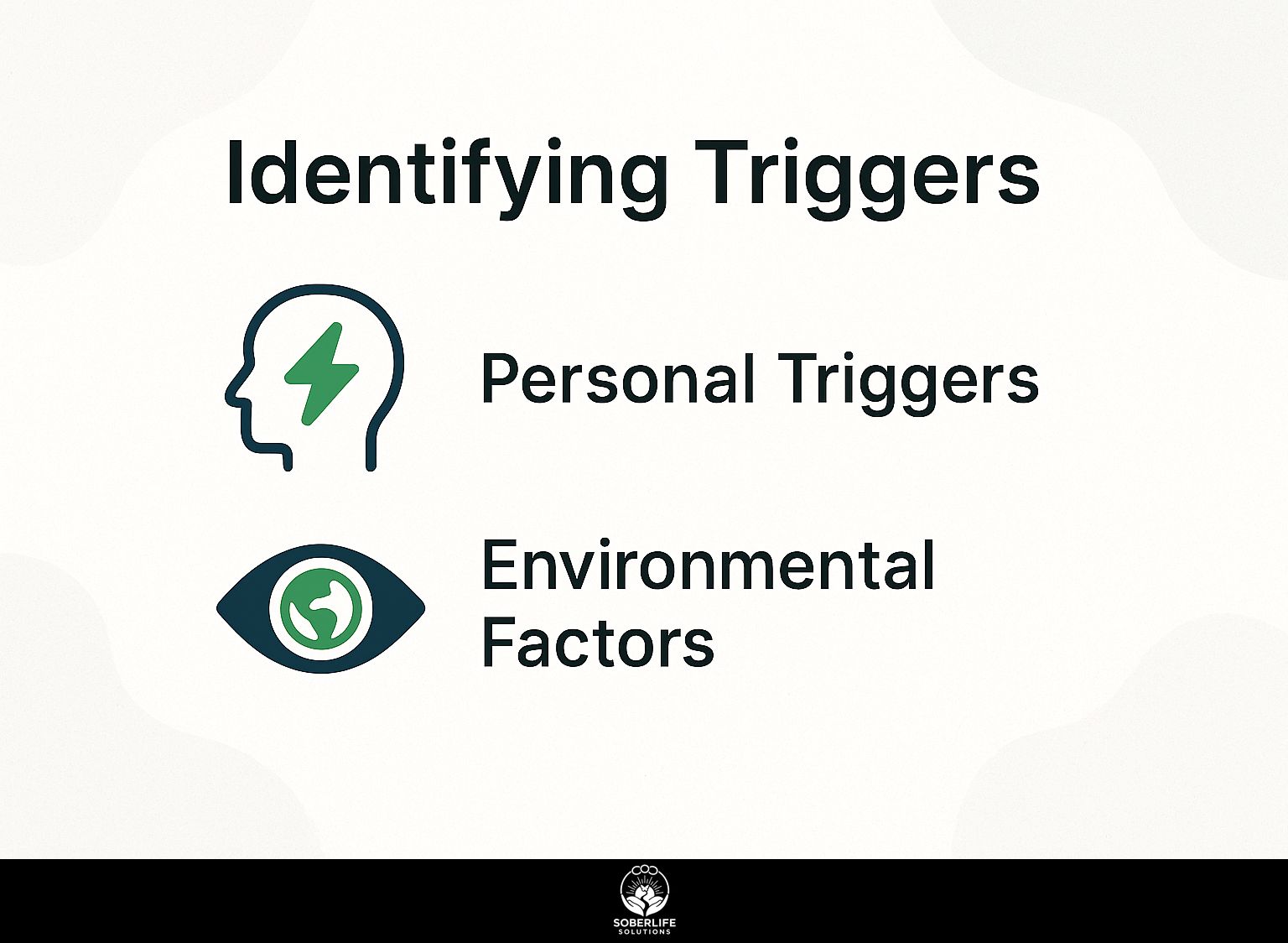
Finding what causes relapses is important to stop them; knowing what affects you and the things around you helps handle risky situations better. If you’re curious about strategies to manage these triggers, our article on preventing alcohol relapse through mindfulness and self-care offers valuable insights.
Personal Triggers
Personal triggers often come from emotions, social pressures, and past experiences, making it important to find and manage them during recovery.
To effectively identify your personal triggers, begin by journaling daily emotions and reflecting on situations that evoke strong reactions.
For example, note instances where stress from work leads to cravings or how interactions with certain friends impact your mood.
Consider using apps like Daylio for mood tracking, which allows for quick reflections on feelings and activities. Talking with a therapist can help you understand your triggers better. By discussing them with a professional, you can find patterns and create coping strategies that fit your personal experiences.
Environmental Factors
Environmental factors, like being around drug use and negative social influences, are important in assessing a person’s risk of relapsing. A study published by ResearchGate highlights the significant influence that these environmental conditions have on substance abuse patterns.
To mitigate these risks, individuals can take actionable steps. For instance, they should actively avoid environments associated with past substance use, such as bars or parties.
Having strong social connections is important. Spend time with supportive friends or join groups like SMART Recovery or Alcoholics Anonymous.
Creating a structured daily routine can help fill time that might otherwise lead to temptation. Incorporating activities like exercise or volunteering can further solidify a positive environment, reducing relapse triggers in the long run.
Coping Strategies
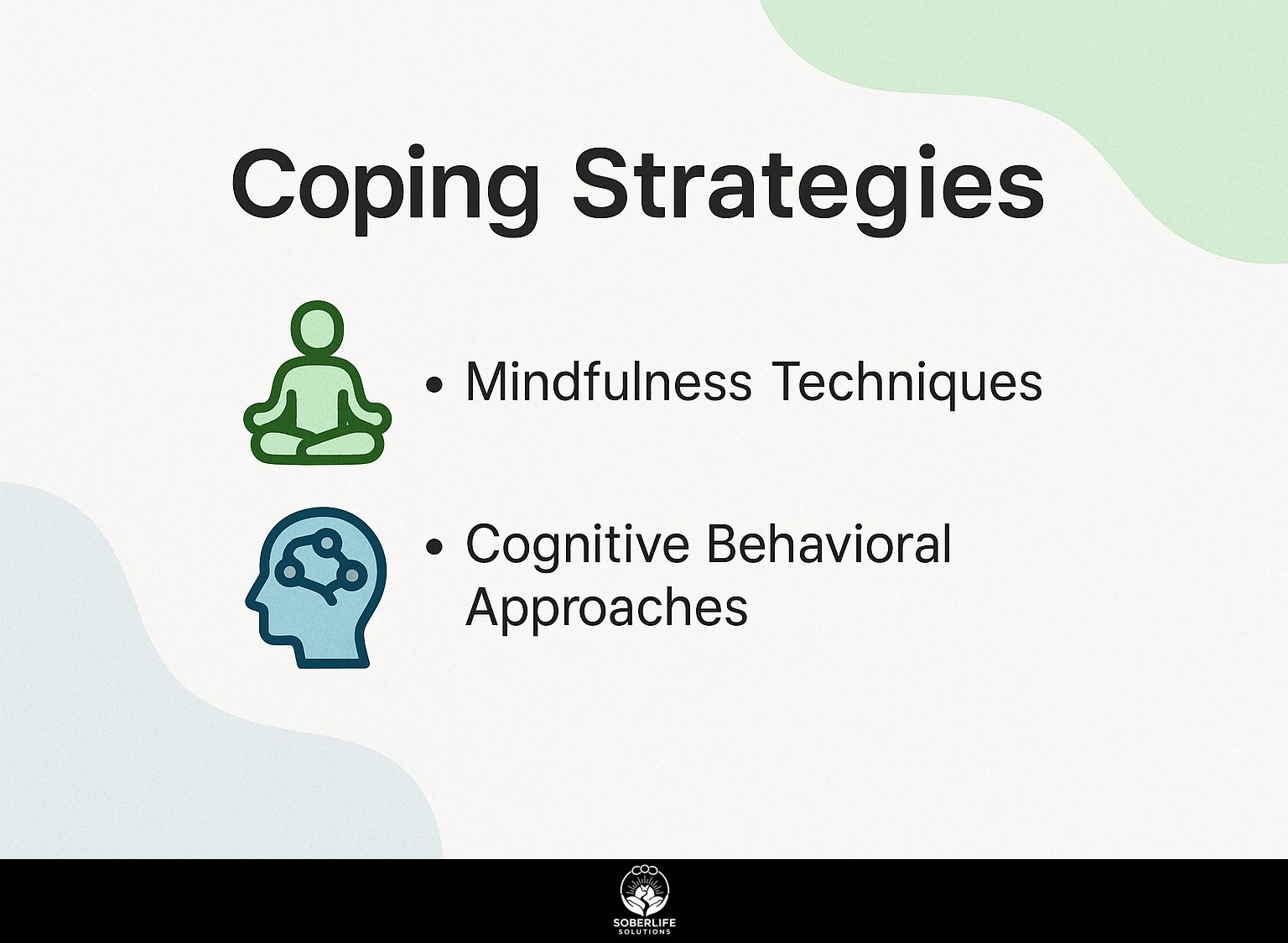
Using helpful methods like mindfulness and cognitive behavior techniques is important to handle negative feelings and lower the chance of relapsing. Worth exploring: mindfulness and self-care strategies to prevent alcohol relapse for more comprehensive guidance.
Mindfulness Techniques
Mindfulness practices, like meditation and deep-breathing exercises, improve emotional self-care by increasing self-awareness and lowering stress, which is important for avoiding relapse.
One effective practice is the 5-4-3-2-1 grounding exercise, which helps bring your attention to the present moment. Spend about five minutes identifying:
- Five things you can see,
- Four things you can touch,
- Three things you can hear,
- Two things you can smell,
- And one thing you can taste.
This practice can be seamlessly integrated into daily routines.
Using apps like Headspace, which provides guided sessions for about $12 a month, can simplify your meditation routine, helping you stick to regular practice.
Cognitive Behavioral Approaches
Cognitive behavioral methods help people recognize and change negative thought patterns, improving their ability to handle challenges and recover.
One useful activity is keeping a journal to write down negative thoughts and regularly question them. If a person thinks, “I won’t overcome my addiction,” they can answer themselves by remembering past successes or progress they’ve made.
Books like ‘Feeling Good’ by Dr. David Burns provide more information about cognitive distortions and ways to change your thinking. CBT practices such as mindfulness and behavioral activation encourage engagement with healthy activities and thoughts, reinforcing positive habits while distancing from triggers.
Building a Support System
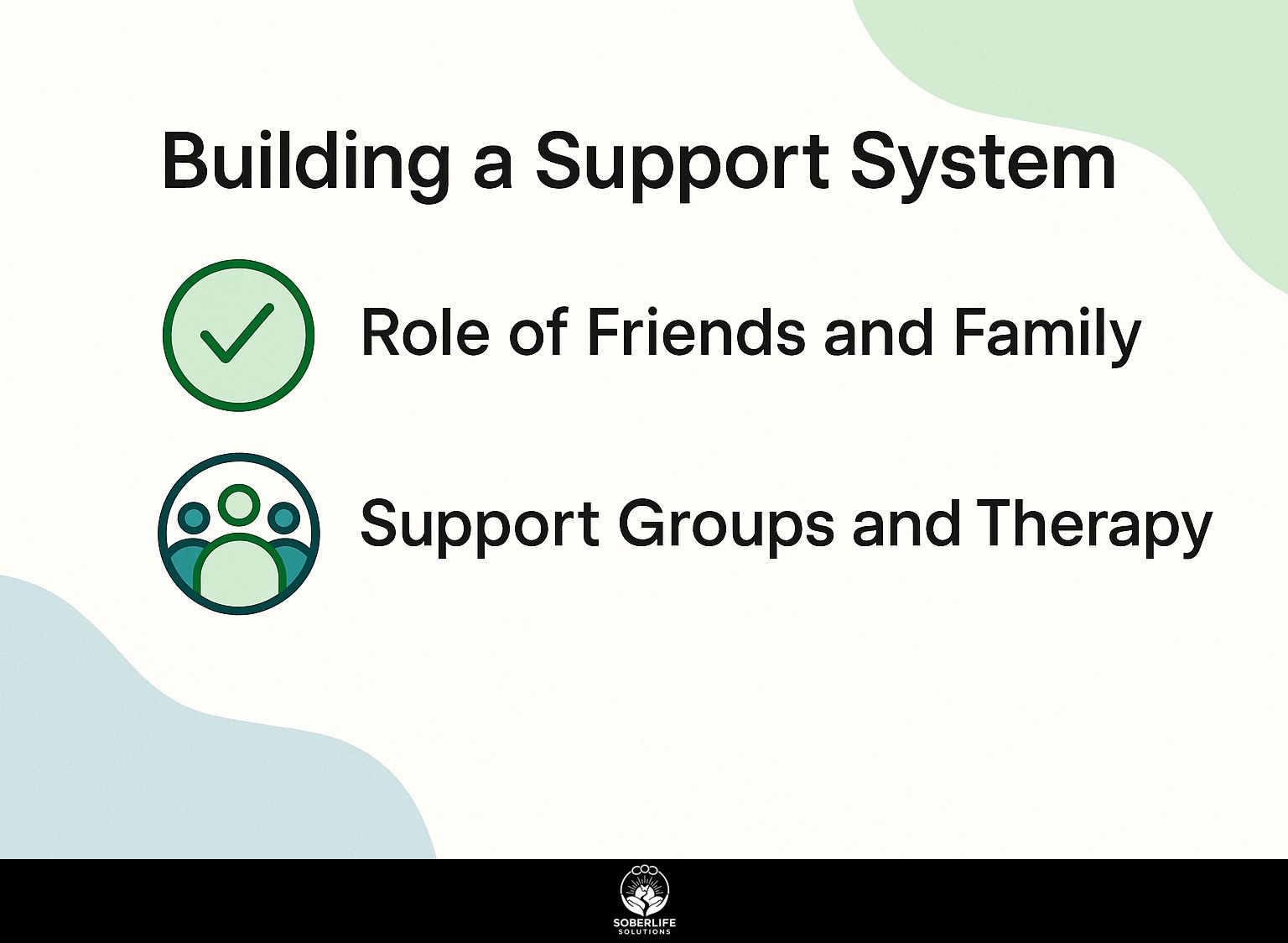
A strong network of support, such as friends, family, and organized self-help groups like Alcoholics Anonymous, is important for maintaining recovery and avoiding relapse. For those interested in expanding their support network, learning how to join online support groups for alcohol recovery can offer additional avenues to reinforce their journey.
Role of Friends and Family
Friends and family are important in recovery by giving emotional help, keeping you accountable, and showing empathy during tough times.
To effectively support a loved one in recovery, prioritize open communication and active listening. Encourage them to share their feelings without judgment.
Schedule regular weekly meetings to create a comfortable environment for conversation. Show your support through small, consistent actions like attending recovery meetings with them, or simply being present during tough moments.
Sending a text with a supportive message can make them feel safer and more connected, helping create a better recovery environment.
Support Groups and Therapy
Joining support groups and therapy sessions, like 12-step programs such as Alcoholics Anonymous, can improve recovery by sharing experiences and finding motivation together.
Support groups provide important benefits, such as better accountability and help from the community.
For example, Narcotics Anonymous (NA) helps people beat addiction by having group talks and sharing personal experiences. In these meetings, members gain knowledge from each other’s experiences. SMART Recovery provides reliable methods to support people in their recovery.
Both groups hold regular meetings, creating a welcoming space where members can talk about difficulties and share achievements. Joining these groups strengthens dedication to healing and gives a feeling of belonging that is important during tough periods.
Developing Healthy Routines
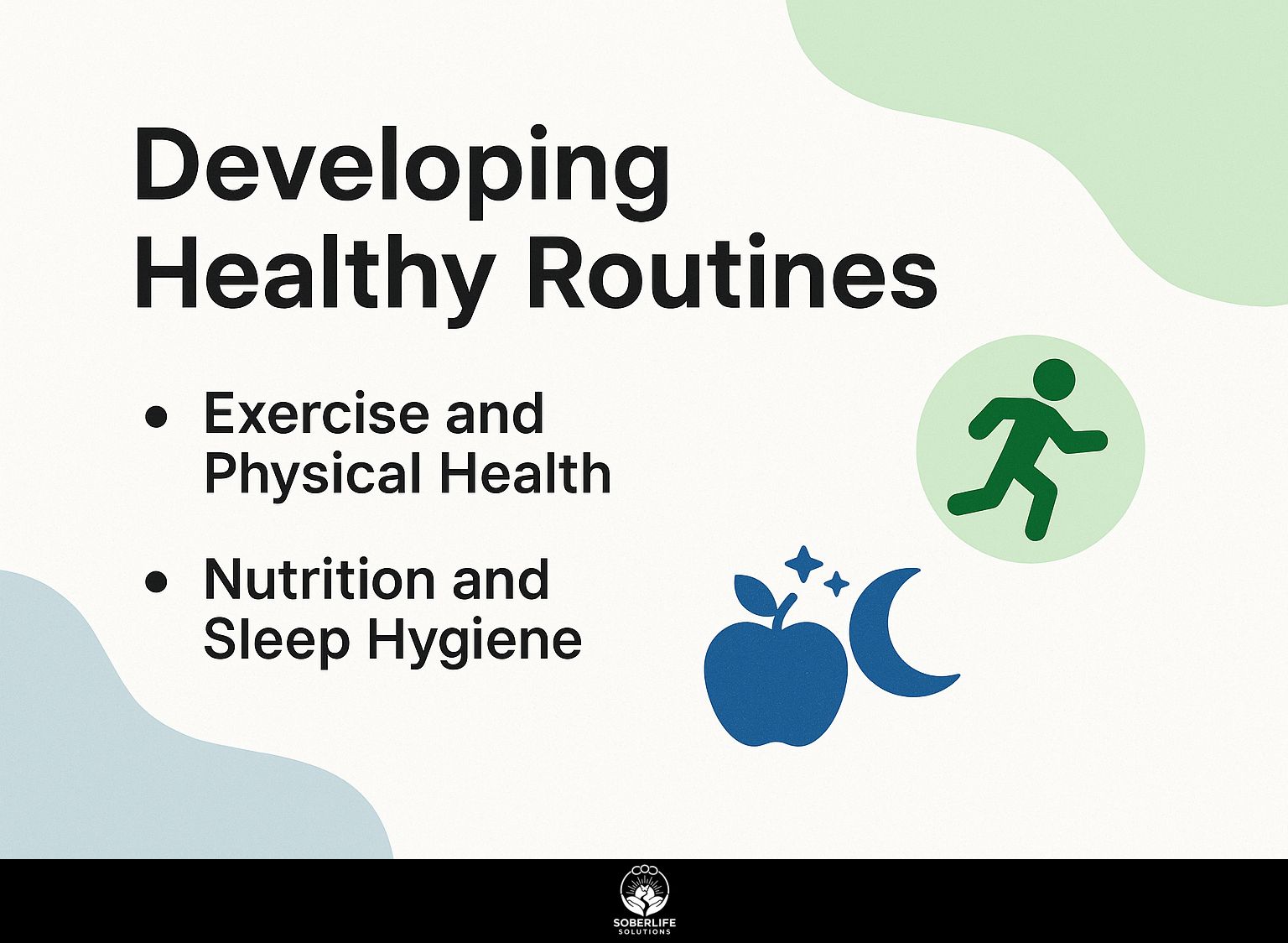
Creating regular habits that include physical activity, a balanced diet, and good sleep practices is important for long-term recovery and general health. To understand how these elements contribute to recovery, consider our deep dive into fitness, nutrition, and sleep in addiction recovery.
Exercise and Physical Health
Regular exercise can greatly improve physical health and has been shown to lessen symptoms of anxiety and depression, which are important in recovering.
To support recovery, aim for a mix of aerobic workouts, strength training, and flexibility exercises like yoga.
For instance, engaging in brisk walking or cycling for just 30 minutes five times a week can reduce relapse rates by up to 40%. Incorporating yoga can improve mindfulness and relaxation, helping to manage stress.
Apps such as MyFitnessPal and 8fit help you monitor your achievements and organize your exercise routines, ensuring you remain driven and attentive while bouncing back.
Nutrition and Sleep Hygiene
Proper nutrition and good sleep hygiene are foundational lifestyle factors that can significantly improve recovery outcomes and overall health.
To improve mental health, think about adding omega-3 fatty acids to your meals. You can find them in fatty fish such as salmon and in walnuts. Aim for at least two servings per week.
Establishing a consistent sleep routine can yield significant benefits. Tools such as Sleep Cycle (free-$29.99) can help you monitor and analyze your sleep patterns, enabling you to make necessary adjustments.
Aim for 7-9 hours of quality sleep each night, and try to go to bed and wake up at the same time daily, reinforcing your circadian rhythm.
Monitoring Progress
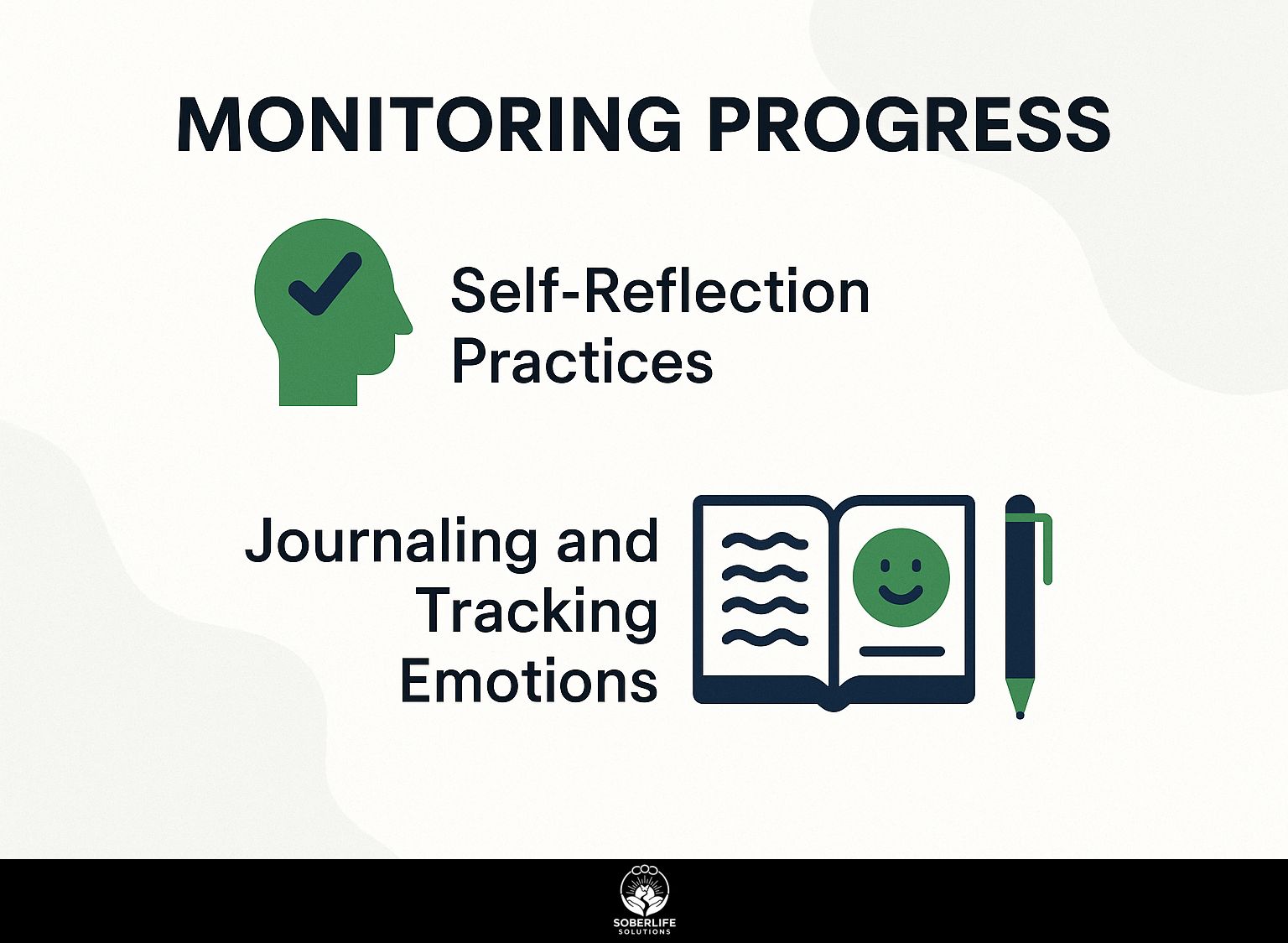
Keeping track of progress through self-reflection activities like journaling is important for noticing patterns in behavior and emotions during recovery.
Self-Reflection Practices
Engaging in self-reflection practices, such as daily check-ins and meditation, can help individuals recognize emotional fluctuations tied to their recovery experiences.
To improve your self-reflection, try using guided meditation exercises. Apps like Headspace or Calm offer structured sessions ranging from 10 to 30 minutes, designed to improve mindfulness.
Personal assessments, such as journaling your thoughts or using mood-tracking apps like Daylio, help you identify triggers and patterns over time. Take 5 minutes daily to think about your emotions and write down your activities. This helps you understand your emotions better.
Journaling and Tracking Emotions
Writing in a journal and keeping track of feelings are helpful methods to improve self-awareness and cope with mental health symptoms during recovery.
To make the most of journaling while recovering, try writing about particular topics. Ask yourself questions such as:
- Which coping methods were effective this week?
- What situations caused emotional reactions?
Think about what you are thankful for by recalling good moments each day. This can improve how you feel.
Implementing bullet journaling can aid in easy tracking, as you can create sections for daily emotions, coping strategies, and reflections, allowing you to look back and identify patterns over time. This organized method can help you better grasp the changes in your emotions over time.
Frequently Asked Questions
What is negative affect and how does it relate to relapse in recovery?
Negative affect means experiencing feelings of stress, worry, and sadness. These emotions can often trigger relapse in individuals who are in recovery from addiction.
How can I address negative affect to prevent relapse in my recovery?
One way to address negative affect is to develop healthy coping mechanisms, such as exercise, mindfulness, and therapy. It’s important to find healthy ways to manage negative emotions rather than turning to substances.
Why is it important to address negative affect in recovery?
Negative affect can make individuals more vulnerable to relapse and can also hinder their overall recovery progress. Addressing negative emotions helps to reduce the risk of relapse and promotes a healthier mindset.
Are there any specific techniques to address negative affect in recovery?
Yes, some techniques that can be helpful include cognitive-behavioral therapy, relaxation techniques, and positive self-talk. It’s important to find what works best for you and to consistently practice these techniques.
Can support from others help address negative affect in recovery?
Absolutely. Having a strong support system can provide individuals with the emotional support and encouragement they need to effectively address negative affect. This can include family, friends, therapists, and support groups.
What should I do if negative affect is overwhelming and I feel like I may relapse?
If negative affect becomes overwhelming, it’s important to reach out for help. This can include talking to a therapist or a trusted loved one, attending a support group meeting, or getting professional treatment. It’s important to deal with these feelings before they cause a relapse.

